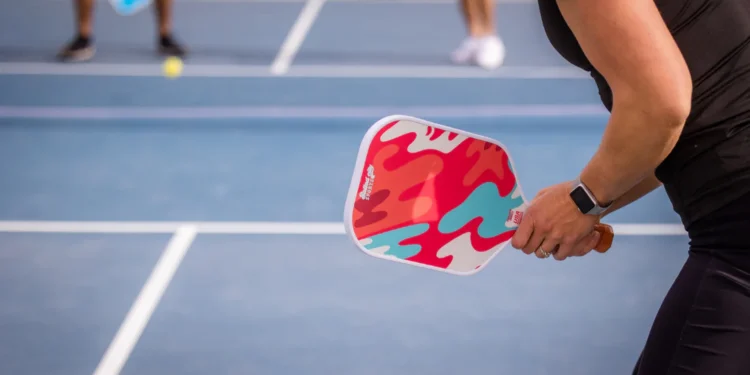Seattle Parks and Recreation has shortened operating hours at three pickleball facilities after residents complained about late-night noise from the increasingly popular sport, despite pickleball’s status as Washington’s official state sport.
The affected locations, Laurelhurst, Mount Baker, and Gilman Playground in Ballard, now operate under reduced schedules following multiple neighbor complaints about paddle and ball sounds extending late into the evening.
Gilman Park experienced the most significant change, with court hours reduced from the previous 4 a.m. to 11:30 p.m. schedule to new hours between 7 a.m. and 10 p.m. The adjustment reflects city officials’ response to noise concerns in residential areas.
“I’ve been here till 10 o’clock, just shy of ten, and you can still kind of play, but I agree 10 o’clock, that should be it,” said Jeffrey Windland, a frequent Gilman Park player who supports the time restrictions.
However, some players expressed disappointment about reduced flexibility for evening play. Green Lake player Walter Gates said he would utilize later hours if available and supports others who prefer extended playing time.
“I just think people have different amounts of free time and I could be out here for hours at a time,” Gates explained.
Real estate agent Jennifer Daniels, who plays regularly at Gilman playground, noted that complaints often reference homeowners association noise regulations. “A lot of people are invoking HOA rules, CC&Rs about the noise because it is loud,” Daniels said. “So certain areas around the city, they’re outlawing pickleball in certain neighborhoods.”
Seattle officials made the schedule changes based on complaint volume and potential city noise ordinance violations, without consulting acoustical engineers or conducting formal sound studies.
A weekday sound measurement at Green Lake Park, one of Seattle’s busiest pickleball locations, recorded paddle and ball sounds ranging between 62 and 89 decibels, levels that can be disruptive in residential settings.
Despite the restrictions at three locations, Seattle maintains 17 parks with free pickleball courts, while neighboring Bellevue offers a dozen additional facilities, providing ample playing opportunities throughout the region.
“Personally, I’d rather go to a public space like this and be able to play with a bunch of different people at a bunch of different levels,” said Green Lake player Elsa Cajune, highlighting the community aspects that draw players to public courts.
The hour reductions reflect growing pains as pickleball’s popularity surges nationwide, creating tensions between recreational access and neighborhood quiet enjoyment in urban settings.







